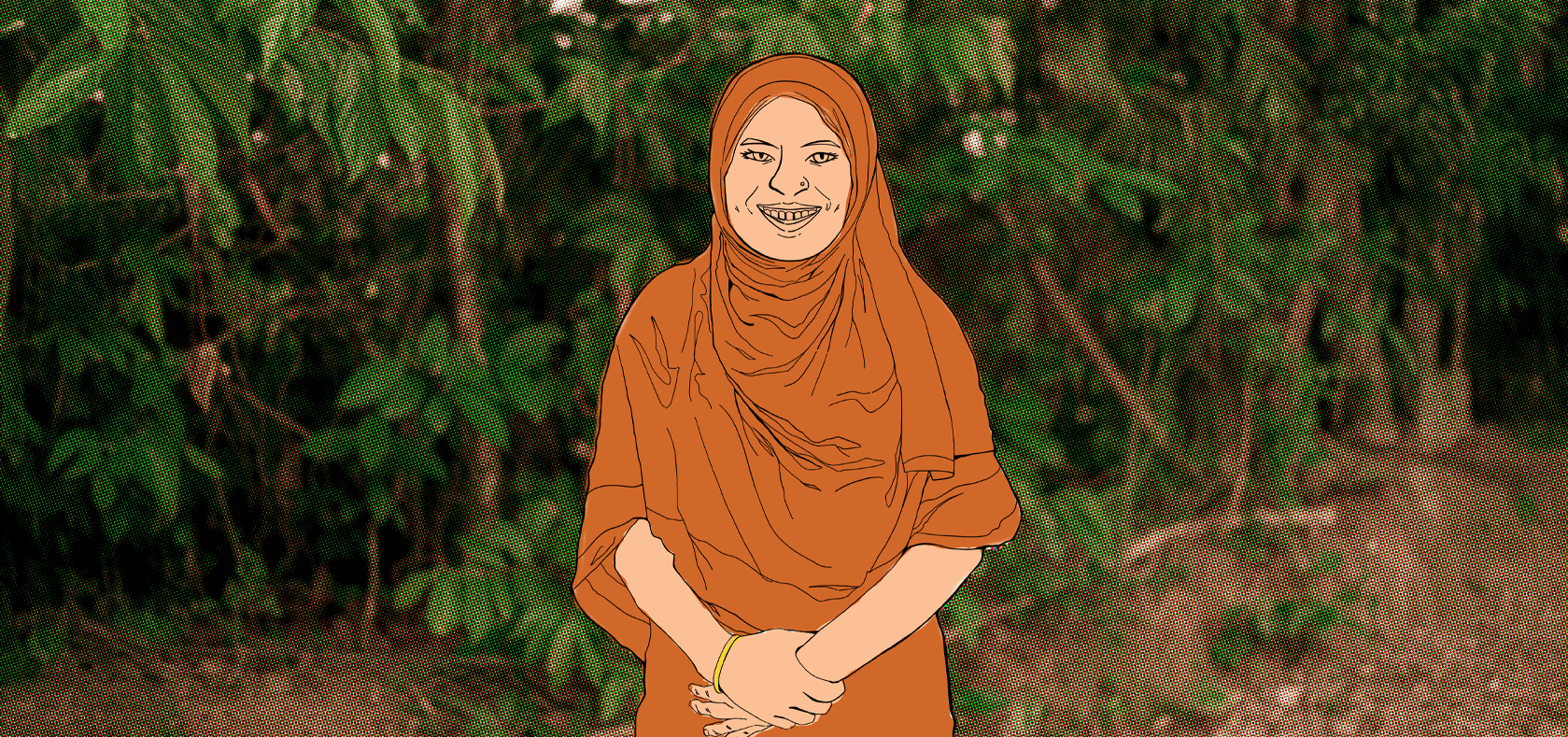Mending families, building peace: Women leaders in Cox’s Bazar
Date:
Author: Magfuzur Rahman Shana

One out of every two Bangladeshi women (53.3 per cent) has experienced some form of intimate partner violence in their lifetime. In Cox’s Bazar, local women leaders are stepping up to address a devastating yet overlooked issue: domestic abandonment.
“For two months, I had no words, no money. I felt invisible,” recalls Tabassum Begum (pseudonym) of Ukhiya, her voice trembling. “I married my husband in 2013 and we have two children, a boy and a girl. My husband worked as a day labourer. Quite suddenly and without explanation, he left our home and stopped all communication. I struggled to keep up with family expenses. I had no income of my own.”
Begum’s story is all too common. Abandonment and desertion of wives are prevalent forms of violence against women that have devastating impacts on their financial, emotional, physical and social well-being. In a predominantly ‘male breadwinner society’, abandoned wives face high risks of economic insecurity in Bangladesh. Wife abandonment also seriously damages the well-being of children. Worse, many abandoned wives are ostracized and face traumatizing stigma in their community.
In Bangladesh, the Domestic Violence (Prevention and Protection) Act of 2010 may offer legal recourse for abandoned spouses. However, being uninformed of their rights and scared of social stigma, most women do not seek help. This is where Maitree Apas like Rupali step in.
Rupali Akter (pseudonym), a community leader known as Maitree Apa (meaning woman peacebuilder), joined the MAITREE group in January 2021 under the project “MAITREE: Promoting Women’s Participation in Peacebuilding and Social Cohesion”. Run by Ain o Salish Kendra (ASK) and managed by UN Women with financial support from the Swiss Agency for Development and Cooperation, the project aims to empower women, like Begum and Akter, to become agents of change in their communities.
Moved by Begum’s plight, Akter took her case to the Umbrella Network, a forum where women leaders unite to address critical issues. Equipped with the skills to mediate conflicts, navigate legal systems and mobilize their communities, Akter embarked on a mission to find a solution and reached out to her husband. She knew that Begum’s financial security and legal rights were of utmost importance, so she prioritized ensuring her financial security and that of her children.
“Every family we help rebuild is a step towards peace,” Akter says, her eyes reflecting a determination born from personal struggle.
Working closely with the MAITREE Project paralegal team, she explored the legal avenues available to Begum. Akter arranged a consultation with Begum’s husband, to inform him of the legal consequences of failing to support his family. She explained that a legal case against him could be filed through the Upazila Nirbahi Office with the help of its paralegal team.
“We are unwavering in our pursuit of justice and equality for women,” declares Akter, her voice echoing the principles of the MAITREE project and her deep-seated commitment to women’s rights.
Realizing the gravity of the situation and the potential consequences of his actions, Begum’s husband returned home. He apologized and resumed his responsibilities as a husband and father. The couple is now rebuilding trust and the family is beginning to heal. Begum is now more aware of her rights and her husband is paying the family’s expenses and their children’s educational costs. The MAITREE group also follows up regularly with Begum to ensure that all is going well.
Inspired by her own journey and the support she received, Begum now stands as a symbol of resilience and a champion for change.
“I want to use my experience to help other women,” she declares with newfound resolve. “I also want to prevent child marriages, fight against domestic violence, and help build a future where peace and equality prevail at home and in my community.”
Begum’s story is just one of many. In 2023, 528 women leaders known as the ‘Maitree Apa' (180 Rohingya women and 348 host community women) demonstrated enhanced leadership to promote social cohesion and mitigate/mediate disputes affecting women in their communities, with legal aid and advice provided by UN Women’s partner, ASK.
Altogether, Maitree Apas have mediated and resolved 85 per cent (681 out of 797) of the GBV incidents that have come to their attention in their communities, referring the remaining 42 cases to relevant authorities or service-providers, with support from ASK.